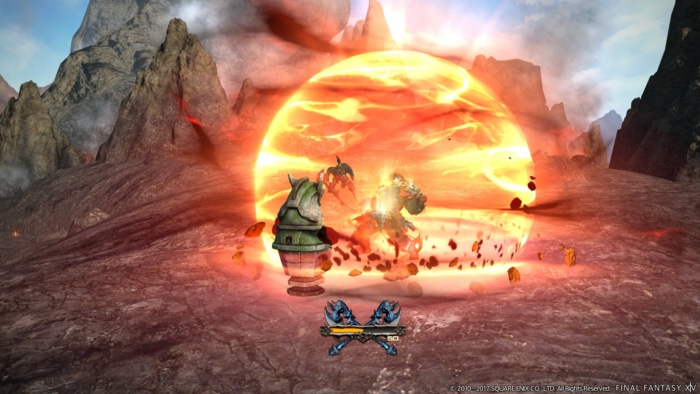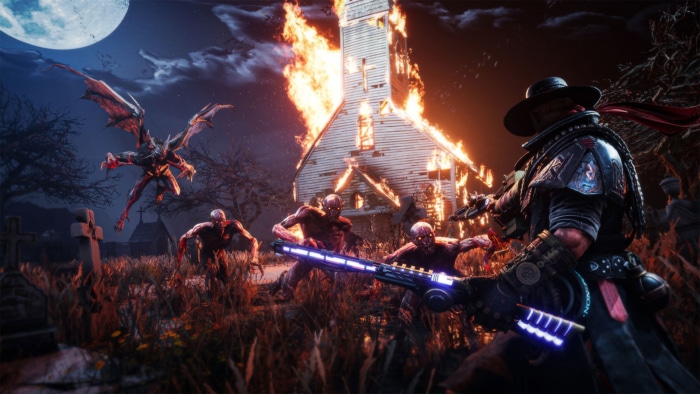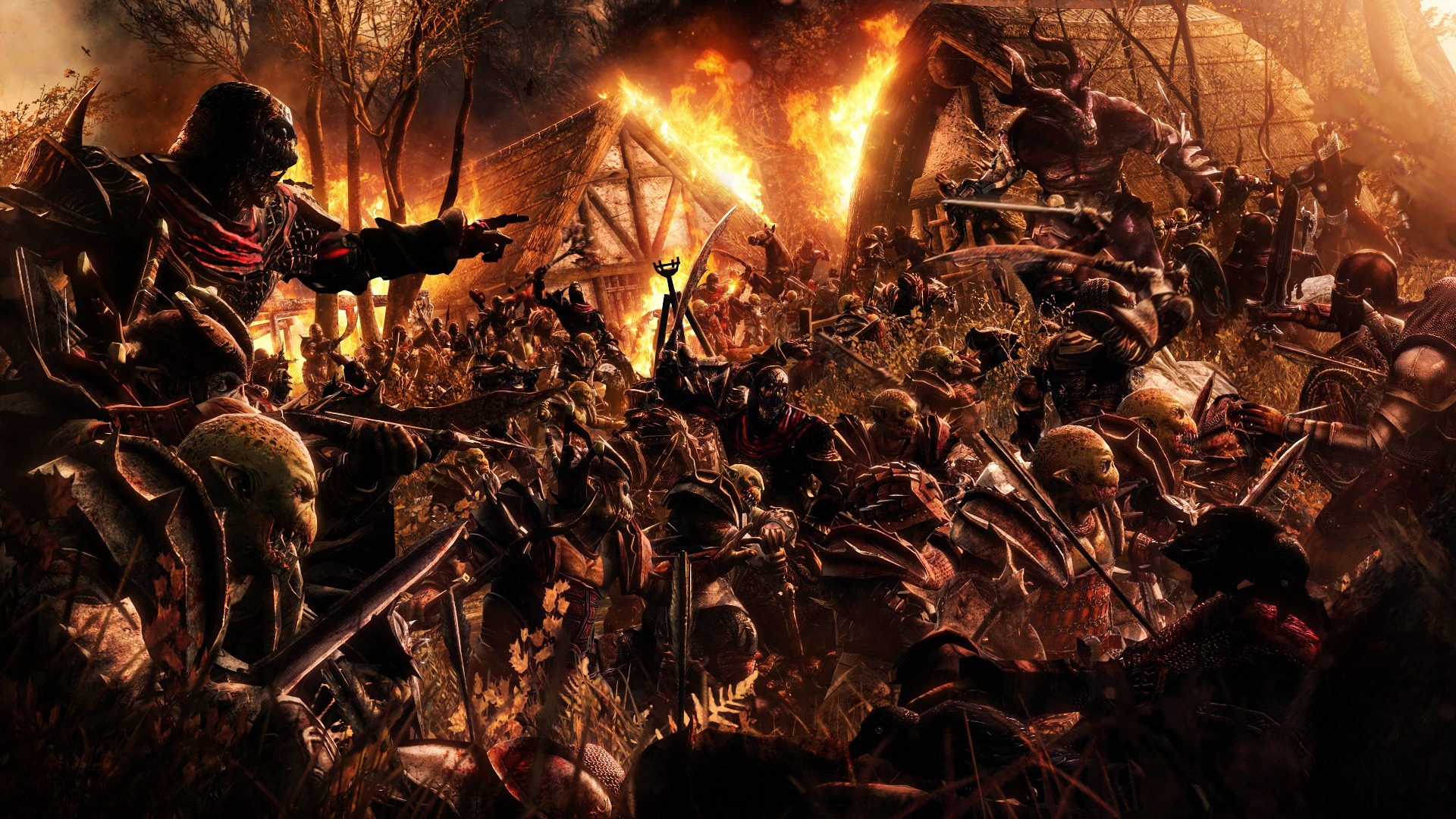The Complete History of Role-Playing Games (RPGs): Part 13 – Action RPGs & Where Nimble Fingers Matter
The humble role-playing game has risen from the tabletop imaginings of Dungeons and Dragons fans to a massive industry that dominates the computer game industry.
Delightful storylines, immersive plots, sympathetic characters and a touch of skill, RPGs have everything a devout gamer needs to provide escapism on a grand scale—but how did they get here and what happened along the way?
Here at Ultimate Gaming Paradise, we know some of the tales.

Episode Thirteen: Where Nimble Fingers Matter
There is absolutely no physical skill required to play Dungeons and Dragons. There are some physical requirements, such as rolling a dice, but no actual skill in their rolling. Plus, if you do show skill in that department, it’s called cheating.
For a long time, computer RPGs followed that same example. Role-playing games were practically defined by the fact that they were based more on turn-based strategy than they were on your skill with a controller. Most RPGs of the 1980s (and plenty after that) would completely pause if you weren’t providing any input, allowing you to just get up off your chair and walk away until you were ready to come back and say what to do next.
It’s not surprising. RPGs were born as a merging of wargaming, which is very much a turn-based strategy environment, and storytelling which, in its core form, is done by turning pages of a book.
(The pedants out there who want to discuss oral storytelling and filmmaking as examples are free to do so, but that’s not the point.)
Role-playing games quite quickly became the domain of the logical gamer, the sort of person who preferred statistics to lightning-quick reflexes. They were more likely to enjoy chess as an alternative to football.
But is turn-based, statistics-heavy gameplay the only way to make a role-playing game? Is it even the best?
Moving On…
It may not be the first example (and it really isn’t), but Final Fantasy’s Active Time Battle (ATB) system was a major game changer. It debuted in Final Fantasy IV to much acclaim and redefined the way many people viewed the role-playing genre.
With ATB (something so important that Square decided to give it its own moniker), the combat in the game would continue to play on in the background if you stopped interacting with it. Sort of.
ATB went through many iterations, but the central idea of the system was that instead of teammates and monsters taking turns in performing strikes, they had a ‘how long it takes me to do my action’ variable and were ready to take another go based on that. At its simplest, if someone had an action speed of 10 and another character had an action speed of 5, then the latter would get to perform two attacks for every one of the former.
Plus, importantly, the timer ticked on, no matter what you were doing. It was possible to set different settings—notably to have the system pause while you navigated menus—but when used at its purest, ATB gave combat a sense of urgency that was lacking from similar games up to that point.
Very gently, ATB added a reaction and speed-oriented skill to the turn-based combat, a skill that wasn’t about number crunching. If you were alert and able to cycle through the menus effortlessly, and if you had quick reactions to the battle as it developed, then you would win more fights than another player who might have similar tactical acumen but was lacking in one of the other qualities.
Faster-thinking players were more able to defeat the harder battles and practice actually meant something.
While ATB was not the only version of this to evolve, it was one that a number of people focused on at the time, with Final Fantasy a series that regularly caught attention. As such, it can very much be considered a key moment in the evolution of RPGs in the early 1990s.

The Push Back
Not every player was happy with the idea that RPGs were moving away from the turn-based model. Designers of the time seemed cautious with their development as purists were quick to dismiss a game that relied on controller skill as ‘not a proper RPG’. That ethos was the prevailing belief and it was hard in many circles for players to shake that viewpoint—hardcore role-players simply wrote off any title that didn’t fit their prejudice. Oh, they were happy enough with systems like ATB, as it could tailor a little to fit their sensibilities and it wasn’t truly action-driven, but anything that veered too far into the world of *cough* ‘action’ *cough* was to be ignored. Not a role-playing game.
Of course, that stance has been softened with time, but even today there are plenty of role-playing fans who would stand by the idea.
Thus, the development of skill-based RPG titles was slow and stunted. Rather than diving headfirst into this arena, game genres were very split. On one side came action titles like DooM and Golden Axe, on the other were the Dragon Quests and Ultimas. At the extreme end of the scale were some ‘tactical role-playing games’, which were developed more as combat-oriented strategy games with story and role-playing elements in them. Fire Emblem and its successors showed that there was a lot of potential in the idea, proving once again, the diverse range of RPG fans.
What Makes a Game a Role-Playing Game?
Multiple times in this series we have looked at making some sort of definition regarding what it means to be an RPG. When it comes to the idea of real-time action vs. turn-based strategy, it becomes a lot more difficult.
One of the things that everyone is willing to agree to is that a role-playing game has a storyline. Another is that the game tends to focus on individuals; role-playing games have protagonists or teams of protagonists, not armies or unnamed generic things (like a spaceship or theme parks). After that, however, it becomes a little more grey.
Super Mario Bros. for example, has a storyline and is focused on an individual, but you’d be hard-pressed to find anyone who describes it as a role-playing game.
Popular Products
The industry uses ‘RPG’ as a label, defining a genre rather than caring about the core of the idea. With this label, an RPG is required to have statistics to measure and progress the player’s character. Mario has stats (even though we don’t see them), such as how high he can jump, but they are not used to progress the character and thus, it isn’t an RPG.
Does this make Golden Axe an RPG? Here you can select your character, there’s a storyline, and they have health (defined as a few bars) and a magic stat (the number of potions you have) which can be increased or decreased through gaining food and potion items. You can even ride dragons. Again, most would say ‘no’, but it’s a very fine line.
What about Gauntlet? Procedurally generated maps, multiple character types, a range of weapons, a ‘hit points’ statistic, health potions, dungeons, gold to collect… It has many of the traits of a rogue-like RPG but again is far more an arcade action game.
But nothing in this argument, either within the industry or from outside, says that the game needs to be turn-based.
Indeed, the sub-genre ‘action RPG’ evolved to take this new and growing split of games. It was a sub-genre that was to become the primary view of RPGs for many people, and for good reason.
Why Action Is Important
Stretch your mind back to the very beginning of this article series. In part one, we saw how those gamers back in the 1970s dreamed of a computerised role-playing game, a version of Dungeons and Dragons that they could see represented on screen. Wizards casting fireballs, orcs swishing swords, environments that react to rules without the need of a dungeon master, NPCs who could speak to you—all of it was the wish list.
What players wanted wasn’t some sort of petty definition of what a role-playing game was or wasn’t. What they were after was something unbelievably fun, where they could escape the real world and pretend to be someone else for a while. A game that looked amazing, where they could ride a dragon, or pilot a spaceship, or cast a spell to make themselves invisible. They wanted to role-play and have their imagination brought to life.
Waiting your turn to make your move while on-screen statistics dictated who would be the victor of the combat was never the dream. All those stats and clever rules were simply mechanics to try to achieve the true desire.
Somewhere along the way, the industry (and many players) became bound up in the mechanics that had made Dungeons and Dragons instead of the core idea that was the game. Those mechanics made the game work, they weren’t what the experience was all about.
For all the ‘it’s not an RPG’ that surrounds a pure action title such as Golden Axe, the fact is that it achieves, in many ways, what the wistful players of the late 1970s were after. It provides escapist fun where you get to be an axe-wielding dwarf, killing skeletons and riding on fire-breathing lizards. It’s far closer to that early imagining than is given credit.

With action, role-playing games are able to achieve one of their core aims. Action is simply a different way of making the player’s avatar do their thing, and it’s a lot closer to a real-world experience than basing the outcome on stats. Sure, pressing X on a controller and swinging a sword isn’t that far removed from rolling a dice, but having to think about the timing of the swing and watching the opponent to see if they have left their flank open, very much is.
Perhaps it is this reason that means the decades that followed saw far more growth in the arena of action role-playing games than statistics-based ones.
Blowing the Mind of the Player
‘Can you imagine what it would be like to be a wizard, fighting a dragon? The great beast comes out of the rubble of a castle, which it has just lain waste, and it flies over your head, filling your view as the sky darkens.’
That was the sort of thing those pioneer role-playing gamers discussed over tabletops in their beige rooms.
Well, to all those gamers of the late 1970s, I offer you Skyrim.
Or Demon’s Souls.
Or Dragon Age: Origins.
As these games were released, thirty years later, the wistful visions of first-edition AD&D players were reaching reality. They were awestruck; rarely did they put the games down and think to themselves ‘this would be better if there was a little less controller-based action and a lot more turn-based statistics’.
Game series like The Elder Scrolls (of which Skyrim was part five) didn’t just impress players, they blew them away. It was the fulfilment of a three-decade-long dream, and it just kept getting better.
But I’m No Good…
Action RPGs aren’t for everyone; it’s not unreasonable to want to play the sort of game where you have time to sit back and think, and still have an in-depth storyline and stat-based main character progression. Those are very much RPGs as well.
There are players who might be amazing at tactics-based thinking but are simply rubbish at using a mouse and keyboard at speed. There are only so many times you can see the words ‘You Died!’ appear on the screen in red before you realise you’re not getting any better at this and it’s time to stop.
That said, one of the major advantages that action-RPG titles have against a more basic action game is that you can grind some experience points, and put all that stat-based stuff to good use. If you can’t get past a certain part because the monsters are simply too hard, then you can grind yourself a level or two and come back significantly stronger, or you can switch equipment and try it that way.
The impressive diversity of options that the role-playing side of the action-RPG offers means that you can practice and grow in skill, both in the real world and as your player character. It’s a great balancer that rewards dedication and patience.
Truly, the best of both worlds.
Coming Next…
For many, RPGs mean a fantasy setting. If it doesn’t have wizards and dragons in it, it’s just not right. However, there are many backdrops for a good story and not all role-playing games default to swords and sorcery. We’ll see you next time when we dive into the many different worlds of role-playing games.




